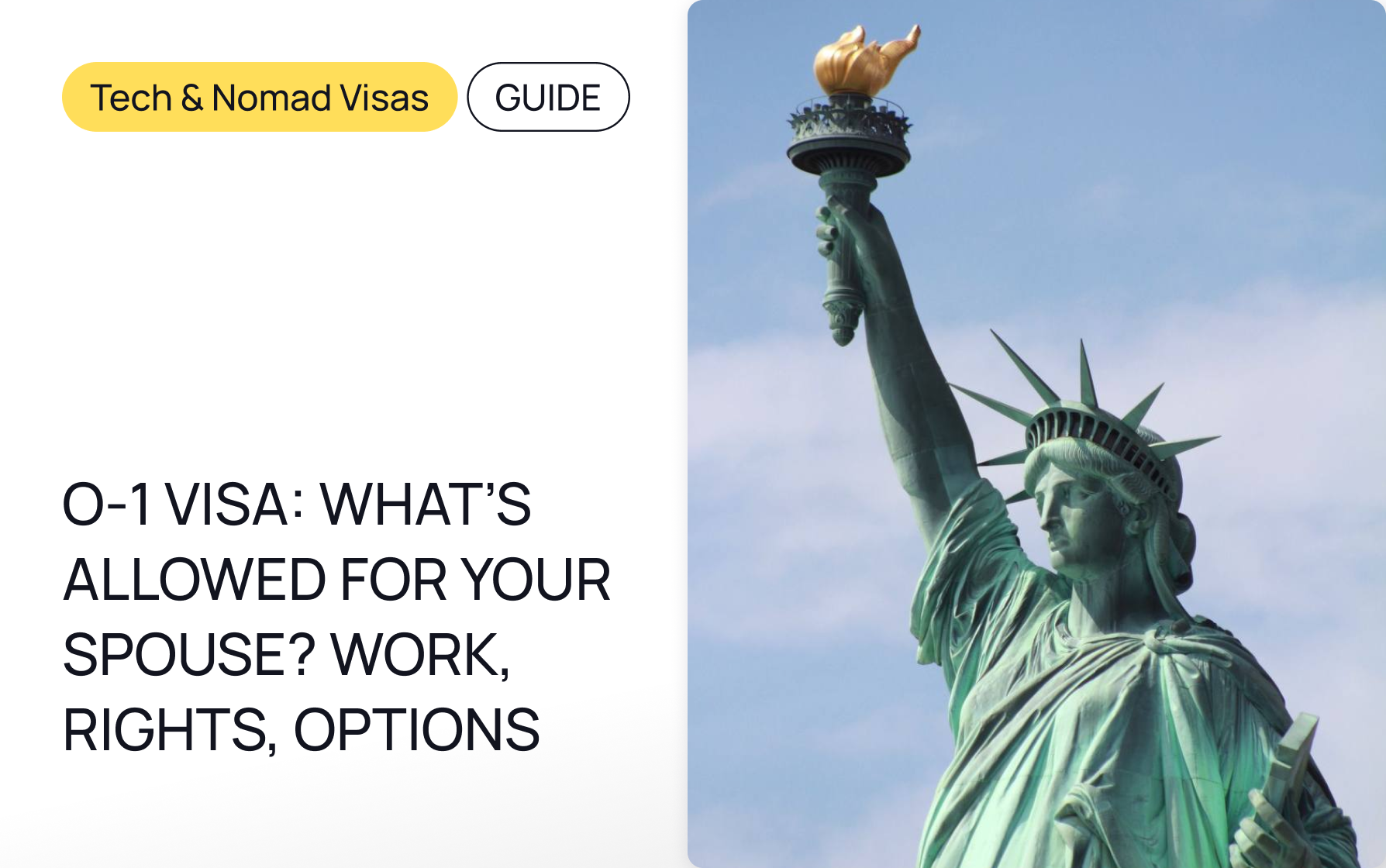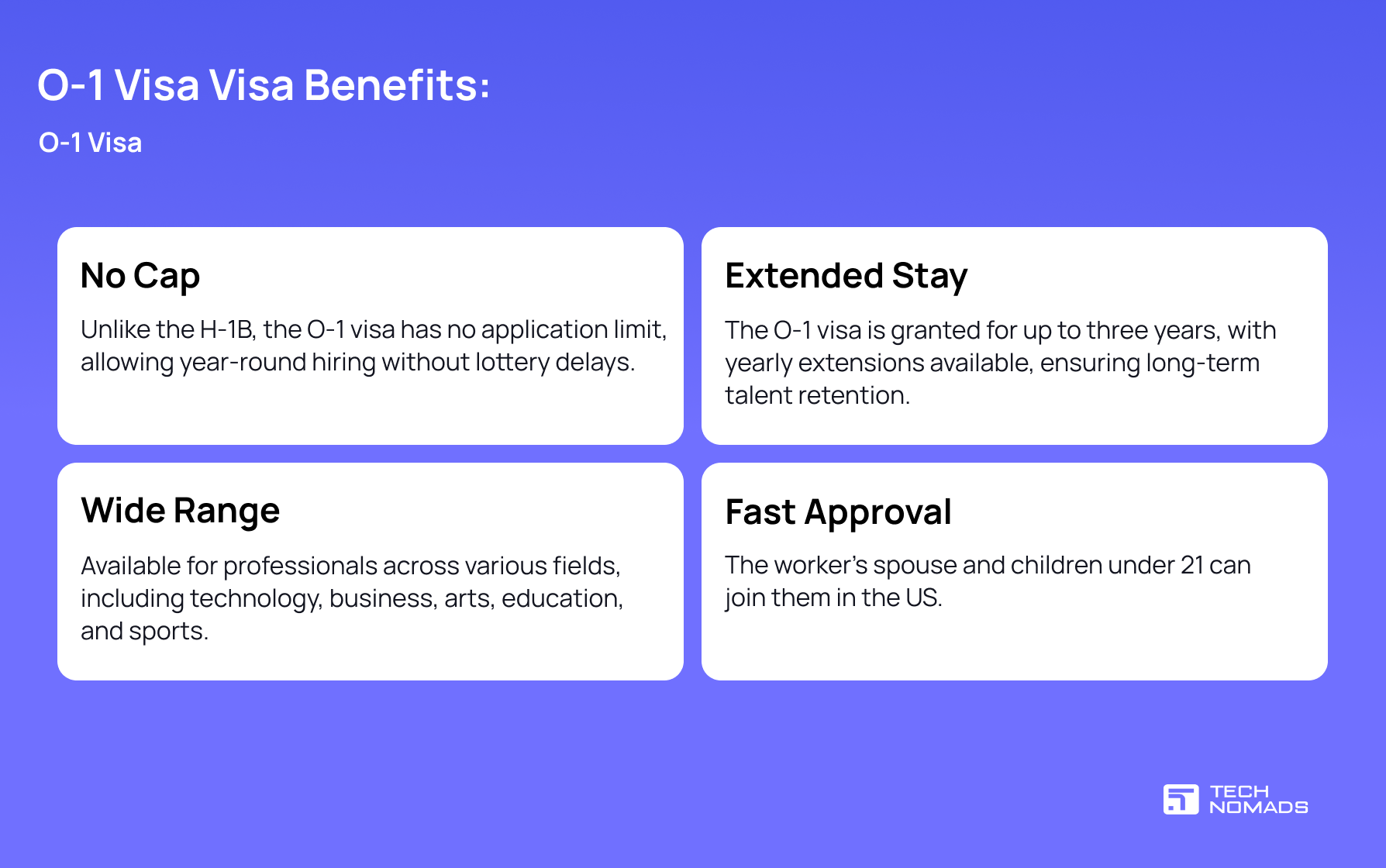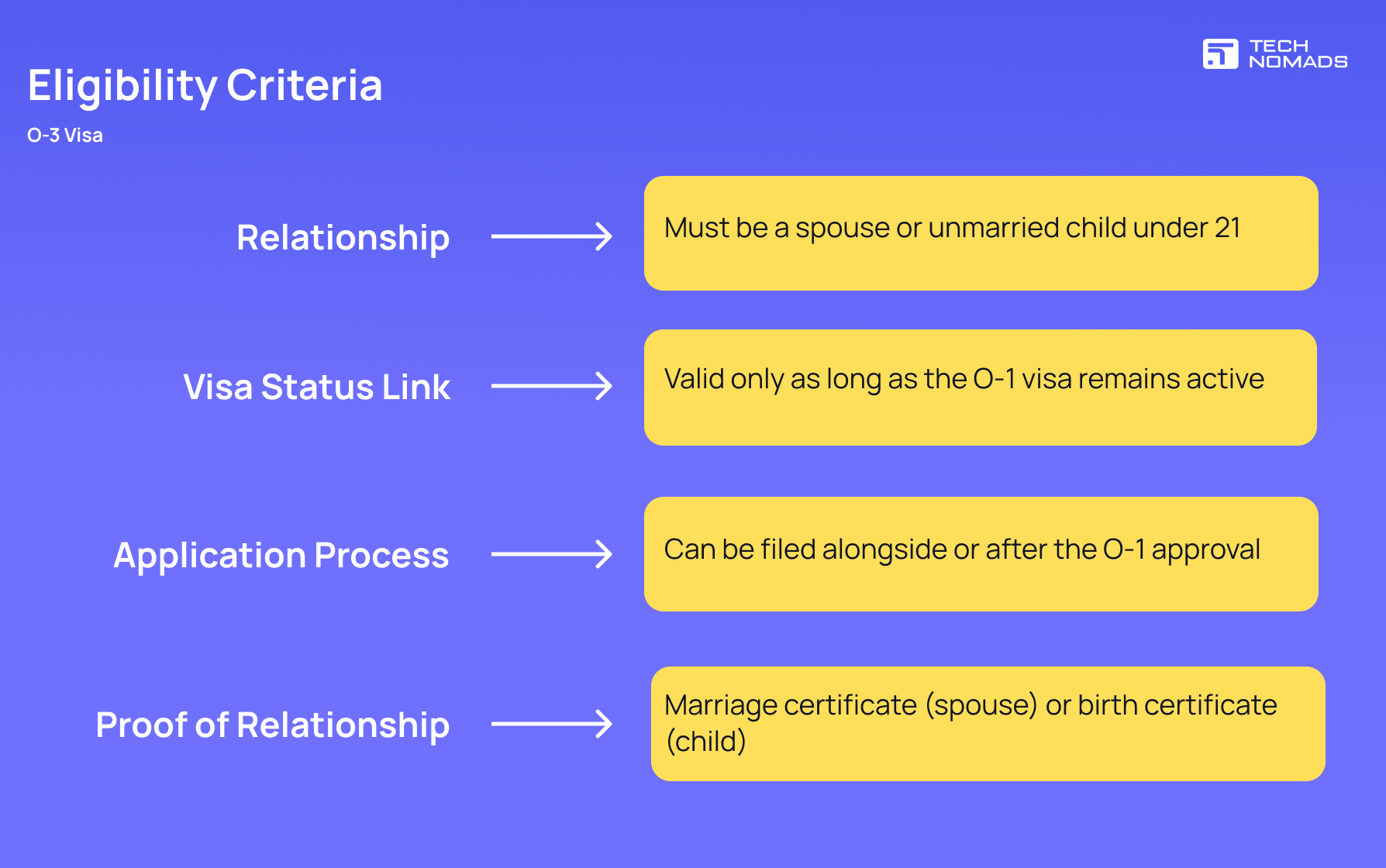
For individuals with extraordinary ability in their field—be it science, art, education, athletics, or business—the O-1 visa offers a compelling path to live and work in the United States. But what happens when you're not travelling alone? If you're bringing a spouse and children along for the journey, it's crucial to understand what your family's life will look like under this visa category.
In this guide, we break down the O-1 visa's impact on family life, the role of the O-3 dependent visa, and what it means for your partner and children day to day.
The O-1 visa is a non-immigrant visa reserved for individuals who have demonstrated extraordinary ability or achievement in their profession. It’s commonly issued in areas like:
Unlike many visa categories, the O-1 is person-specific—granted to you based on merit. However, it also provides a pathway for your immediate family to accompany you to the U.S.

Yes—your spouse and children under 21 can apply for the O-3 dependent visa, which allows them to live with you in the U.S. for the duration of your O-1 status. The O-3 visa is directly tied to the O-1, meaning their ability to remain in the country depends on your continued legal stay.
Those on an O-3 visa can:
However, there are restrictions, particularly for your spouse—most notably around employment. O-3 visa holders are not permitted to work in the United States. That said, there are still ways for your partner to stay productive and fulfilled, which we’ll explore in detail later.
Understanding what each family member can and cannot do under the O-3 status is essential for setting realistic expectations and planning daily life.
Here are just a few of the key questions families ask:
These are important concerns—and we’ll address them one by one in the next sections.

O-3 Visa Explained: What Rights Does Your Spouse Have?
The O-3 visa allows spouses and dependent children of O-1 visa holders to accompany them to the United States. While this visa provides important benefits such as lawful residence and the ability to study, it also imposes strict limitations—particularly regarding employment.
Entitlements under the O-3 Visa
Spouses and children are permitted to enrol in educational programs, including full-time academic studies and professional courses.
Employment Restrictions
It is important to understand that the O-3 visa does not confer work authorization. Spouses are prohibited from:
Attempting to work while on an O-3 visa may jeopardize your spouse’s immigration status.
Remote Work Considerations
Some O-3 spouses choose to perform remote work for foreign employers while physically present in the U.S. This arrangement may be permissible if:
Nevertheless, this remains a legally ambiguous area. Consulting with an immigration attorney is strongly advised before pursuing remote work to mitigate risks.
Options for Employment Authorization
If your spouse wishes to work legally in the U.S., they must obtain a visa that permits employment. Common pathways include:
Each pathway involves a separate application process and requires approval from U.S. Citizenship and Immigration Services (USCIS). It is advisable to plan early, as processing times can be lengthy.
To gain more information about USA Visas, read our articles:
O-1 Visa: A Visa for Talented Professionals
Understanding the International Entrepreneur Rule (IER) and How it Compares to the O1 Visa
B-1 Visas for Founders: Short-Term Travel, Big Mistakes to Avoid
O-1 Visa: A Visa for Talented Professionals
While the visa grants the right to live and study in the U.S., it does not include work authorization. Recognising these limitations helps avoid immigration issues and supports informed decision-making for families navigating life in the U.S.
O-3 visa holders are not authorized to work in the U.S. This includes:
Engaging in any form of paid employment while on an O-3 visa is considered a violation of U.S. immigration law and can jeopardize both the O-3 holder’s and O-1 visa holder’s legal status in the country.
It is important to note that the restrictions apply strictly to paid work. O-3 spouses are free to participate in unpaid activities such as:
However, caution is advised to ensure that unpaid roles do not inadvertently cross into work that should be compensated.
Some O-3 visa holders engage in remote work for companies based outside the U.S., especially if payment is made internationally. Although this scenario may not violate U.S. immigration rules explicitly, it remains a grey area and could pose risks if scrutinised by immigration authorities.
For spouses seeking to work legally in the U.S., changing visa status is necessary. Common options include:
Each of these options requires a formal application and approval process.

Changing status requires a separate USCIS application, legal support, and processing time.
Volunteering offers a valuable way for O-3 spouses to contribute to their communities without violating visa restrictions. Many non-profit organisations, cultural institutions, and charitable groups welcome volunteers in various roles, providing:
It’s important to ensure that volunteer work is truly unpaid and not replacing paid positions, as this could jeopardize visa status.
O-3 spouses are permitted to study in the U.S. at any level, including:
Education can enhance career prospects and provide a pathway for future visa opportunities, such as transitioning to an F-1 student visa.
While paid internships are not allowed, unpaid internships or training programs aligned with educational goals can be beneficial. These experiences offer:
O-3 spouses may also consider:
These activities can enrich daily life and provide balance during the transition period.
While the O-3 visa offers limited legal rights—especially around employment—it doesn’t mean life in the U.S. has to be limiting. With the right mindset, preparation, and community support, your family can thrive while accompanying an O-1 visa holder. The key lies in planning your new lifestyle intentionally, especially for the spouse who may be stepping away from a full-time career, and for children who will be adjusting to a new educational and social environment.
First, it’s important to define what “fulfilling” means for each family member. For spouses, this might mean continuing professional growth through education, volunteering, or remote consulting (if legally appropriate). For children, it could mean having access to a nurturing academic environment, extracurriculars, and opportunities for cultural exchange. Mapping these priorities out early—before or shortly after arrival—can help avoid frustration and create a shared sense of purpose.
Here are some strategies to help build a rewarding lifestyle while on an O-3 visa:
Families who arrive with open eyes and a proactive approach tend to adapt best. It's not just about adapting to life in the U.S.—it's about building a version of life that still feels purposeful, connected, and enriching.
When relocating under an O-1 visa, families often focus first on housing and immigration paperwork. But once those basics are covered, another crucial phase begins: integrating into U.S. society—especially for children and spouses. Education, community belonging, and mental wellbeing are key areas that shape the overall success of your family’s relocation experience.
Let’s start with children. The good news is that O-3 children can attend U.S. public schools free of charge, just like U.S. citizens and permanent residents. These schools follow local state curricula and are funded through local taxes, offering access to structured learning, extracurriculars, and social development.
If your family prefers a specific educational model—such as the International Baccalaureate (IB), British or French curriculum, or private schooling with religious affiliation—many U.S. cities offer international schools, though tuition can be costly. It’s worth researching and budgeting in advance.
In terms of integration, children tend to adapt quickly, especially if enrolled early in the academic year. Parents can support them by:
For spouses, emotional wellbeing is more complex, especially when career identity is closely tied to one’s sense of self. The transition from full-time employment to a more restricted visa role can lead to feelings of frustration or isolation. That’s why it’s vital to build in structure and self-development goals from the start.
Here are a few easy ways to support your own or your spouse’s wellbeing during the O-3 period:
Most importantly, don’t be afraid to ask for help. Whether it’s professional immigration advice, mental health support, or educational counselling, the U.S. offers resources—but you often have to seek them out proactively.
Relocating to the United States on an O-1 visa is an exciting milestone—it signals international recognition of your skills and accomplishments. But when you’re making that move with your spouse and children, the success of the journey isn’t just measured by your career; it’s also about how your family adapts and thrives in a new country.
Yes, the O-3 visa has its limitations—most notably, the restriction on employment for spouses. But it’s also a unique opportunity to pause, reassess, and grow in different ways. Whether that’s through continuing education, volunteering, personal development, or exploring long-delayed goals, this period can be incredibly enriching if approached with intention.
Here are a few reminders to carry with you as you plan your family’s move:
Do you find it hard to showcase and structure your achievements for the USA Visa application? Or are you uncertain about which experiences USCIs finds most relevant? Tech Nomads has you covered.
Tech Nomads is a global mobility platform that provides services for international relocation. Established in 2018, Tech Nomads has a track record of successfully relocating talents and teams. Our expertise in adapting to regulatory changes ensures our clients’ satisfaction and success.
To explore your USA relocation options, you may:
Subscribe to our social media platforms to stay up-to-date on global mobility news and opportunities: